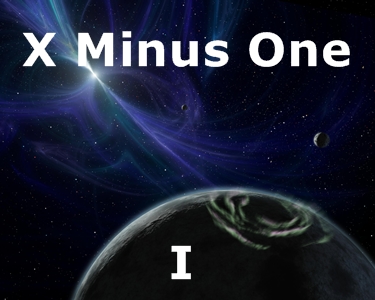If You Was a Moklin
Author: Murray Leinster
Originally aired: 12 June 1956
Plot synopsis: The inhabitants of the planet Moklin so admire the human explorers who have come to their planet that they engineer the evolution of their offspring so that their children become exact replicas of the visitors. Based on a short story first published in Galaxy Science Fiction magazine, in September 1951; and later in Murray Leinster's short-story collection Monsters and Such, in 1959.
Favourite line: 'They've got a queer sort of evolution here on Moklin. Babies here inherit desired characteristics. Not acquired characteristics, desired ones.'
Review: It may be tempting to interpret this episode about aliens that can create indistinguishable copies of human beings in the same way that many have read Invasion of the Body Snatchers, which dates from the same period: as a Cold War parable about the threat of covert communist infiltration. Yet this story offers a somewhat different perspective on the idea of aliens-impersonating-humans, which does not so easily lend itself to this interpretation. The aliens in this story are not overtly malevolent, and nor do they wish to impose what they regard as a superior way of life upon humanity; they do not, therefore, seek a straightforward subversion of human civilization. Instead, they appear driven by envy, and wish to imitate humans because they like and esteem our society and values. Indeed, they even emulate the capitalist initiative of the human characters, setting up their own trading post to rival the Earth men's. This makes the episode quite a thought-provoking one, imputing a very unusual motive to its aliens when compared to those typically found in science fiction, in which most alien attempts to replace human beings are prompted by fear, arrogance or hatred. Another fascinating notion in this story is that of beings who can control their own evolution, able to pass on to progeny not only their parents' actual characteristics, but desired ones! This may not be very logical or scientific, but it remains an intriguing conceit. The actual plot isn't wholly compelling - and the ending may be a little predictable - but there are some good ideas here.
Rating: * * *
Inside Story
Author: Richard Wilson
Originally aired: 20 June 1957
Plot synopsis: A news reporter on Mars goes undercover to get the inside story on an internment camp for victims of an incurable disease called 'Nully Fever', which turns them into violent, deranged fiends. Based on a short story first published in Galaxy Science Fiction magazine, in June 1955; and later in Richard Wilson's short-story collection The Man Without a Planet and Other Stories, in 2012.
Favourite line: 'I fixed them before they got me - I cut down ten medics with a power drill! Ha ha ha ha ha ha!'
Review: This is almost the definition of an average story: not bad, but not great. The central idea is interesting, and there are some nice touches - for example, the invisible suit the reporter wears to infiltrate the internment camp to protect him from the disease. Similarly, the revelation that finally proves to the reporter, and ultimately the rest of humanity, that Nully Fever does not necessarily produce all the terrible symptoms the authorities claim it does has a definite emotional impact. However, the episode also feels a little lacking, with not quite enough to the story to make it truly compelling or involving. Moreover, the resolution feels too neat; without revealing what this is, the 'cure' that is discovered for the disease is just too easy and convenient.
Rating: * * *
The Iron Chancellor
Author: Robert Silverberg
Originally aired: 27 January 1973
Plot synopsis: A man concerned that he and his family have became overweight purchases a new robot to monitor and control their diet, yet it soon begins to pursue its task with over-zealous dedication. Based on a short story (also known as 'The Weight Watcher') first published in Galaxy Science Fiction magazine, in May 1958; and later in Robert Silverberg's short-story collection Needle in a Timestack, in 1966.
Favourite line: 'Am I going to eat! I'll eat myself right into oblivion!'
Review: This episode is not, strictly speaking, a part of the original X Minus One series, but was a one-off attempt to revive it in the 1970s. It didn't work, unfortunately, though listening to the episode today, it's not hard to see why it failed to spark much enthusiasm for a revival. The episode is not a bad one, but nor is it especially exciting or thought-provoking. It's based on a story - a very early Robert Silverberg piece - first published in 1958, so it fits in well with the tone and feel of earlier X Minus One episodes (which were broadcast from 1955-1958). On the plus side, the performances are good, and the story is gently satirical, as a human family discovers that the robot they buy to help them lose weight sets about its assignment in the 'dictatorial' spirit of the nineteenth-century German Chancellor, Otto von Bismarck (hence the episode's title). However, the story is also pretty inconsequential, and in terms of its attempts at humour, it feels very much sub-Robert Sheckley (the master of satirical SF). Ultimately, it's not much more than a basic 'robot goes awry' story, without any of the cleverness, say, of Isaac Asimov's best robot stories. Moreover, the production is let down by some truly terrible incidental organ music, which is absurdly overbearing and out of keeping with the story's mood. (It's worth comparing this story with the Dimension X episode With Folded Hands, as this similarly deals with the theme of robots behaving despotically for humans' own good, though it does so in a straighter, more serious way.)
Rating: * * *

